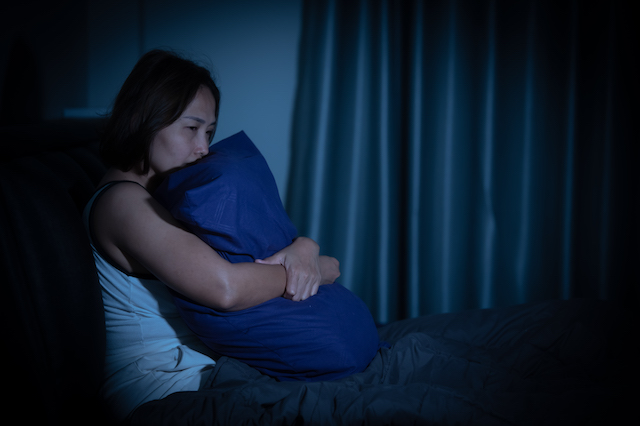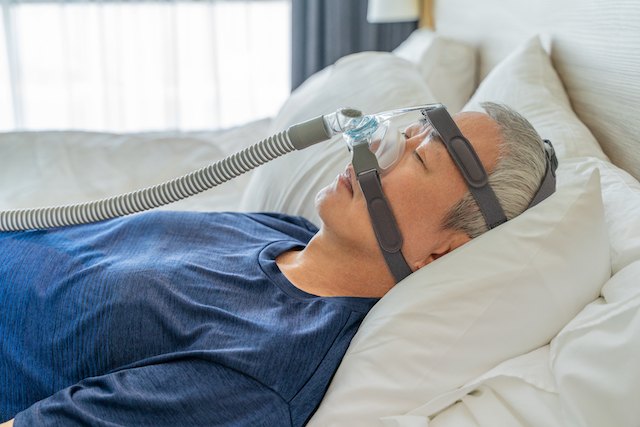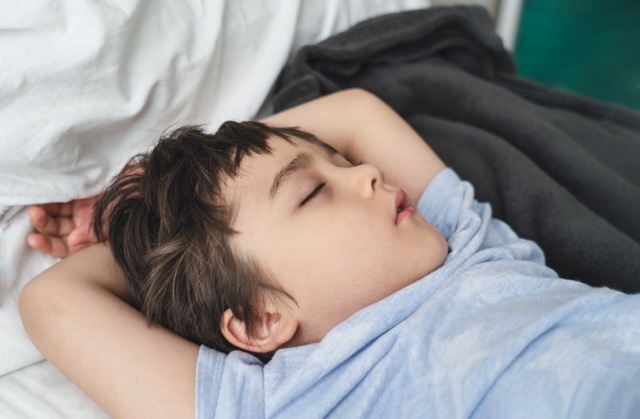
Melatonin offers new hope for obesity prevention according to recent studies
Recent collaborative research spearheaded by the University of Granada (UGR) has unveiled significant findings regarding the use of melatonin in the prevention of obesity. This research, conducted by a team comprising experts from UGR’s Department of Pharmacology, the Federico Olóriz Neurosciences Institute, the Biosanitary Institute of Granada, and the University of Qatar, has shown promising results in mitigating the risks associated with visceral obesity. This type of obesity is especially concerning as it involves fat accumulation deep within the abdomen, surrounding vital organs, thus posing heightened health risks.
The studies, which were led by Professor Ahmad Agil of UGR and published in the well-regarded journals Antioxidants and Biomedicine & Pharmacotherapy, employed a methodical approach to their experimentation. Using adult rats with obesity and diabetes of both sexes, the research demonstrated that chronic administration of melatonin at a dosage of 10 mg/kg of body weight per day over three months is significantly more effective in preventing obesity compared to short-term treatments. Notably, the treatment resulted in a reduction of visceral fat by approximately 3%. Moreover, the studies highlighted melatonin’s ability to alleviate muscle-fibre atrophy associated with obesity, transform muscle fibre types into a more oxidative and slower phenotype, and increase mitochondrial activity and content—factors which collectively contribute to the observed reduction in weight gain among the treated rats.
An intriguing aspect of the research involved combining melatonin treatment with exposure to slightly cold water, around 17°C, which simulates the average sea temperature. This combination was found to further enhance weight loss, suggesting a potential new approach to managing obesity in humans.
Professor Agil underscored the growing prevalence of obesity, overweight, and type 2 diabetes across both developed and developing nations. He attributed these conditions to poor adaptation of the human genome to current environmental factors that include sedentary lifestyles, consumption of hypercaloric diets, and exposure to persistent artificial light which disrupts natural circadian rhythms and reduces endogenous melatonin levels.
To counter these challenges, Professor Agil recommends several lifestyle adjustments based on individual circadian rhythms. During the day, he suggests exposure to natural light, engaging in physical activity, opting for low-calorie, unprocessed diets, and incorporating thermogenic spices in meals while avoiding snacks between meals and reducing the use of insulating clothing and heating in homes. At night, recommendations include sleeping in complete darkness, avoiding blue light-emitting devices before bedtime, and practising fasting to boost melatonin levels naturally. For older adults and those suffering from obesity, Professor Agil advises the administration of melatonin under medical supervision.
The overarching goal of these studies is to integrate strategies like melatonin administration and intermittent fasting into medical practices to address the complex challenges posed by ‘diabesity’—a confluence of diabetes and obesity—and its associated complications, such as hepatic steatosis, hypertension, and lipid disorders. The research builds on 13 years of prior studies which have consistently shown that pharmacological use of melatonin can serve as a viable strategy in treating central obesity and its related complications. Moreover, melatonin has been found to activate brown fat and enhance the conversion of subcutaneous fat to a more metabolically active form, thus promoting the formation of beige fat cells from mesenchymal stem cells in humans.
These findings not only reaffirm the potential of melatonin in treating visceral obesity but also highlight the necessity for further clinical trials to confirm its efficacy in human subjects. Encouraging results from existing human trials support the progression to more extensive studies focusing on melatonin’s role in maintaining mitochondrial homeostasis and potentially slowing or halting the progression of obesity and its complications through prolonged pharmacological use.
The research has received funding from the SAF2016-79794-R project of the Ministry of Science, Innovation and Universities and is also supported by the European Regional Development Fund (ERDF).
Read More
Eli Lilly’s Tirzepatide shows up to 66% reduction in sleep apnea severity in adults with obesity
In a recent development, Eli Lilly & Co. announced that its weight-loss medication, Tirzepatide, has shown promising results in alleviating symptoms of obstructive sleep apnea, a disorder primarily associated with obesity. This revelation emerged from two advanced clinical trials, wherein Tirzepatide significantly reduced the incidences of diminished or halted breathing during sleep by up to 63%, surpassing the anticipations of Jefferies analysts who had projected a reduction range of 50% to 55%.
During these year-long studies, participants experienced a substantial decrease in body weight, with losses nearing 20%, as reported by Lilly. The pharmaceutical giant intends to present the comprehensive findings from these studies at the upcoming American Diabetes Association conference in June. Subsequently, plans are underway to submit these results to the U.S. Food and Drug Administration and other international regulatory bodies starting mid-year.
The potential approval of Tirzepatide for treating sleep apnea could significantly broaden patient access to the drug through insurance coverage. Currently, weight loss medications like Tirzepatide do not receive coverage under Medicare, the U.S. federal health programme for the elderly and certain individuals on long-term disability. Such approval would not only facilitate greater competition with Novo Nordisk A/S—whose leading weight-loss drug, Wegovy, has recently gained insurance coverage for some Medicare beneficiaries with cardiac conditions—but also position Lilly at the forefront of addressing the underlying causes of sleep apnea.
Jeff Emmick, Lilly’s senior vice president of product development, emphasised the transformative potential of Tirzepatide, highlighting its capacity as the inaugural pharmaceutical intervention targeting the fundamental aspects of the disease. Given the correlation between weight loss and improvements in sleep apnea symptoms, widespread insurance coverage for Tirzepatide could potentially prevent up to 5.6 million cases of this sleep disorder by 2030, as estimated by analytics firm Airfinity.
Nevertheless, despite these advances, analysts from Airfinity caution that while GLP-1 drugs like Tirzepatide will significantly reduce sleep apnea incidences, they are unlikely to eradicate the disorder entirely.
The study enrolled 469 participants suffering from obesity and sleep apnea, with some receiving Tirzepatide alone and others receiving both the drug and using breathing devices. Results indicated a more pronounced average reduction in the apnea-hypopnea index (AHI)—a diagnostic measure quantifying the severity of sleep apnea based on the number of breathing disruptions per hour of sleep—for those utilising both the medication and breathing devices compared to those solely on medication.
The approval of Tirzepatide for sleep apnea treatment could also influence the market for respiratory support devices. Companies like ResMed Inc. and Inspire Medical Systems Inc., which manufacture such equipment, may see a reduction in demand, with Airfinity projecting a potential market contraction of over 11% in the coming years due to the increased use of weight loss drugs as a therapeutic alternative.
Read More
Child sleep apnea severity linked to obesity, finds new study
Researchers at UT Southwestern Medical Center and Children’s Health have discovered that obesity and older age are substantial predictors of the severity of obstructive sleep apnea (OSA) in children. The study, recently published in Laryngoscope Investigative Otolaryngology, underscores the essential role of obesity in paediatric OSA. This new finding contributes to the increasing recognition of the association between childhood obesity and various negative outcomes including cognitive deficits, impaired academic performance, behavioural issues, excessive daytime sleepiness, and potential long-term effects on cardiovascular health.
Obstructive sleep apnea is a sleep disorder characterised by repeated obstruction of the upper airway during sleep, leading to interruptions in both ventilation and sleep patterns. Diagnosis of OSA usually requires full-night polysomnography, an extensive sleep study that monitors brain waves, blood oxygen levels, and heart and breathing rates while the patient sleeps.
Traditionally, paediatric patients suffering from OSA have been treated with adenotonsillectomy, a surgical procedure involving the removal of the adenoids and tonsils. However, this surgery does not always resolve the problem, and some children continue to experience what is known as residual OSA after the procedure.
The study was led by Romaine F. Johnson, M.D., M.P.H., Professor of Otolaryngology – Head and Neck Surgery at UT Southwestern, who emphasised that “OSA is typically considered a condition that affects adults.” But Dr. Johnson pointed out that the growing epidemic of childhood obesity has led to an increase in the number of paediatric patients diagnosed with OSA. He explained that “higher levels of obesity and advancing age are key contributors to this issue,” and suggested that targeting childhood obesity could substantially enhance sleep quality and mitigate the detrimental consequences of both OSA and residual OSA.
Dr. Johnson and his research team initially embarked on the study to investigate the relationship between socioeconomic status (SES) and paediatric OSA. They examined the medical records of 249 children aged 18 or younger who underwent both polysomnogram and adenotonsillectomy at Children’s Health over a one-year span. To evaluate the influence of SES on paediatric OSA, the researchers utilised the area deprivation index (ADI), a metric defining neighbourhood-level disadvantages through various social determinants such as education, employment, and poverty.
Contrary to expectations, the study revealed that neighbourhood-level deprivation, as indicated by the ADI ranking, did not predict OSA severity or residual OSA after surgery. Instead, the team found that severe OSA was significantly associated with obesity, and residual OSA was more commonly linked with older age, particularly among adolescents.
While the research did not establish a direct link between SES and OSA severity, Dr. Johnson emphasised the need for further investigation into the relationship. He highlighted the critical nature of understanding how socioeconomic status intersects with paediatric OSA, stating that “social disadvantages can further affect the consequences of poor sleep quality.” He also noted that children who experience both OSA and social disadvantages might be at increased risk and may require specialised interventions.
The significance of this study lies in its identification of childhood obesity as a key factor in the severity of sleep apnea, thereby opening the door to potential interventions targeting weight management. Supported by the Beth and Marvin C. “Cub” Culbertson Professorship in Pediatric Otolaryngology, the research also emphasises the complex interplay between obesity, age, and sleep disorders in children, and calls attention to the need for a multifaceted approach to address these interconnected health challenges.
Read More
A good night’s sleep may make it easier to stick to exercise and diet goals, study finds
Preliminary research presented at the American Heart Association’s Epidemiology, Prevention, Lifestyle & Cardiometabolic Health Scientific Sessions 2023 suggests that people who get regular and uninterrupted sleep are more successful at sticking to their exercise and diet plans while trying to lose weight.
The researchers found that good sleep health was associated with higher rates of attendance at group interval sessions, adherence to caloric intake goals and improvement in time spent performing moderate-vigorous physical activity. The researchers examined 125 adults with overweight or obesity over 12 months in a weight loss program that included measurements of sleep habits through patient questionnaires, sleep diaries and wrist-worn devices.
They measured adherence to the program by percentage of group intervention sessions attended, percentage of days that participants ate between 85-115% of their recommended daily calories, and change in daily duration of moderate or vigorous physical activity.
The study’s limitations include that it did not incorporate any intervention to help participants improve their sleep, that the study sample was not recruited based upon participants’ sleep health characteristics, and that the overall sample population had relatively good sleep health at baseline. Additionally, the sample was primarily white and female, so it is unclear whether these results are generalisable to different population groups.
Overall, the preliminary research suggests that sleep may play a key role in promoting self-control and making healthy choices, highlighting the need for public health efforts to promote healthy sleep habits and the importance of getting enough sleep for maintaining a healthy lifestyle.
Read More